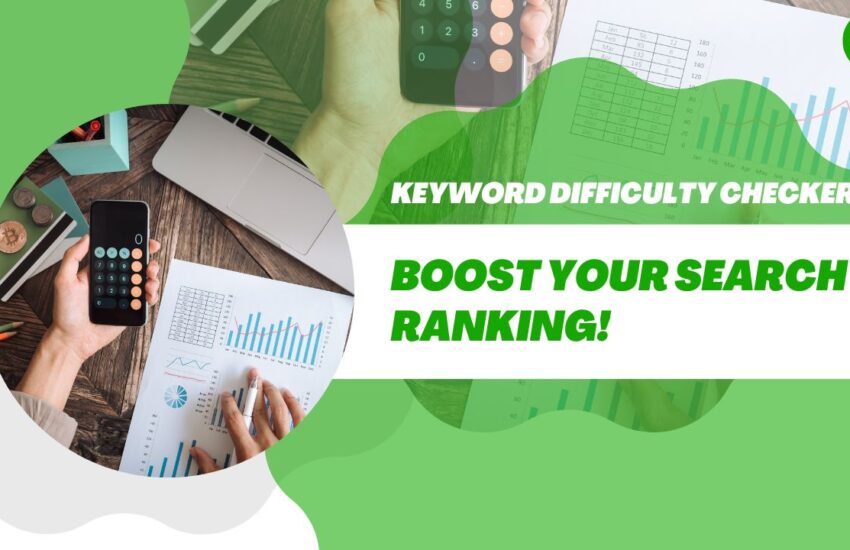Mastering SEO Steps for New Websites: Boost Your Visibility!
Hello Fellas! Embarking on the journey of launching a new website is filled with excitement, but without efficient search engine optimization (SEO), attracting visitors can become a daunting task. In this comprehensive guide, we will explore essential SEO steps specifically designed for new websites. By implementing these SEO Steps for New Websites, you have the opportunity to enhance the visibility of your website, drive organic traffic, and establish a robust online presence. From finding the right keywords to optimizing page elements and monitoring rankings, we’ll provide you with actionable insights to set your website up for success.
Find Keywords
Keywords form the foundation of any successful SEO strategy. Start by conducting thorough keyword research using tools like Google Keyword Planner, SEMrush, or Ahrefs. Identify relevant keywords and phrases that align with your website’s content and target audience. Seek a combination of high-volume, competitive keywords alongside long-tail keywords that offer more specificity. This research will guide your optimization efforts and help you understand the language your potential visitors are using when searching for your products or services.
Put Keywords in the Page Title
The page title is a crucial on-page SEO element that holds significant weight in search engine rankings. Incorporate your primary target keyword naturally into the title tag of each page. Ensure the title is concise, descriptive, and compelling to attract both search engines and users. Craft unique titles for each page of your website to accurately reflect the content and increase visibility in search results.
Put Keywords in the Page URL
Optimizing your page URLs with relevant keywords can further enhance your website’s SEO. Include your target keywords in the URL structure of each page. Use hyphens to separate words and keep the URLs concise and readable. This not only helps search engines understand the content of your pages but also improves user experience by providing descriptive and meaningful URLs.
Put Keywords in Your Meta Description
The meta description is a concise summary of your page’s content that appears in search engine results. Craft a compelling meta description that includes your target keywords and entices users to click on your website. While meta descriptions don’t directly impact rankings, they can significantly influence click-through rates. Aim for a length of around 150-160 characters and make it relevant, engaging, and enticing to potential visitors.
Put Keywords in Your H1 Text
The H1 tag represents the main heading of a page and carries significant weight in SEO. Incorporate your primary target keyword naturally within the H1 tag to signal to search engines the main topic of your page. Ensure the H1 tag is clear, descriptive, and provides a concise summary of the content that follows. Use subheadings (H2, H3, etc.) to further structure your content and include related keywords where appropriate.
Use Keywords in the Page's Content
Strategically include your target keywords throughout the content of each page. Aim for a natural and seamless integration that enhances the user experience. Avoid keyword stuffing or over-optimization, as it may harm your website’s rankings. Instead, focus on providing valuable and informative content that incorporates keywords naturally. Create unique, engaging, and well-structured content that answers user queries and fulfills their needs. Remember to include variations of your keywords and synonyms to provide a comprehensive coverage of the topic.
Build Links to Your Website
Building high-quality backlinks is an essential aspect of SEO. Seek opportunities to acquire backlinks from authoritative and relevant websites in your industry. Create valuable and shareable content that naturally attracts links from other websites. Leverage social media platforms, guest blogging, and online directories to promote your website and generate valuable inbound links. Building a strong backlink profile enhances your website’s authority and visibility in search engine results.
Monitor Your Rank
Regularly monitor your website’s rankings in search engine results to gauge the effectiveness of your SEO efforts. Utilize tools like Google Analytics and Google Search Console to track your organic traffic, keyword rankings, and user behavior. Analyze the data to identify areas for improvement and make necessary adjustments to your SEO strategy. Stay updated with algorithm changes and industry trends to adapt your optimization techniques accordingly. Continuously monitor and refine your SEO approach to maintain and improve your website’s visibility over time.

By adhering to these fundamental SEO Steps for New Websites, you can lay a strong groundwork for your new website and optimize its visibility in search engine results to the fullest extent. From keyword research and optimization to link building and monitoring, each step contributes to driving organic traffic and increasing your online presence. Stay dedicated to optimizing your website and adapting to evolving SEO practices to achieve long-term success. Do you want to grow your business outstandingly? Experience a results-oriented approach to digital marketing with our expert. As a Digital Marketer Expert, we will focus on driving a high return on investment (ROI) for your marketing efforts, optimizing campaigns to maximize your revenue and growth.
Are you interested in SEO optimization? Just follow these SEO Tips and Tricks 2023 Unlocking the Power of SEO!
Happy Reading! 🙂



4 thoughts on “Mastering SEO Steps for New Websites: Boost Your Visibility!”